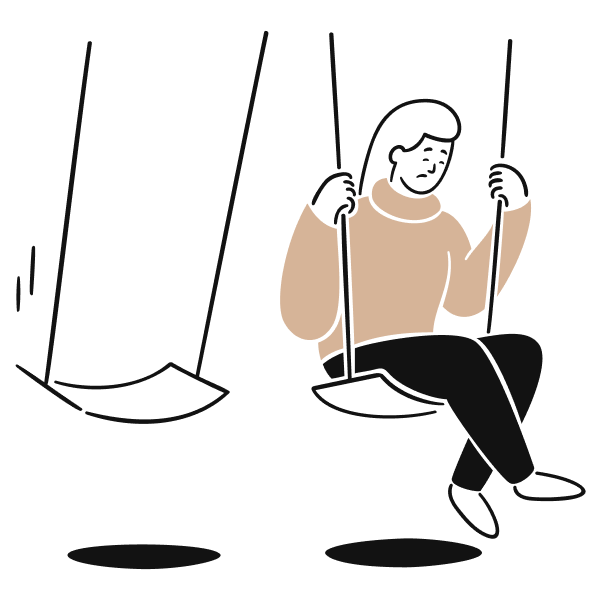Are you looking to treat your depression and are you curious what kind of help you can get? Depression often arises from more than one specific cause. For example, it could be a combination of biological, social and psychological factors.
Treatments for depression
It’s important to look at two of the main factors that perpetuate depression: Activity patterns and (often involuntary) negative thoughts. These two patterns need to be addressed if you want to overcome your depression.
- Activity patterns
When you’re feeling sad, it’s hard to keep up with your daily tasks, let alone major activities. You definitely want to do things, but one way or another you find ways to postpone them, meaning it gets harder and harder to actually do them. You then start to feel like you can’t handle these activities. This creates a sense of powerlessness, which, in turn, makes you feel more depressed. - Negative thoughts
You have a bleak view of the world and everything around you. You tend to focus on the negative when it comes to yourself, others, the world and the future.
The gloomy feelings caused by depression can be very persistent. They can also become more intense over time. It can feel as if you’re trapped in a vicious cycle and it’s hard to see a way out, which makes you feel even more depressed.
Have you tried everything and not seen much improvement? Then it’s time to seek help from an experienced psychologist.
There’s a so-called depression protocol. Cognitive Behavioral Therapy (CBT) is usually the starting point, but Acceptance and Commitment Therapy (ACT) is also an option. If there’s any underlying trauma, then EMDR or Image Rescripting might be applied. Are these treatments all new to you? We are happy to tell you more about it, so that you know exactly what to expect from us.
The psychologists at iPractice can help you overcome depression, even if there is no specific cause. They will help you better cope with your depression and learn how to cope going forward.
Psychologist Depression
At iPractice, we can help you with feeling depressed. On a daily basis we treat clients who are affected by depression. In case of a depression diagnosis, our psychologists look closely at your situation, at the type of complaints you experience and their intensity, so that we can provide a tailor-made treatment. Our aim is to help you better cope with the bouts of depressive thoughts or feelings you experience.
-
Are you looking for depression treatment or do you know someone who could use help with depression? Our psychologists are happy to help you. Call us on +31207717996 and we will immediately give you personal advice.
-
At iPractice, we use blended care. This is a combination of online and offline therapy. You’ll have face-to-face conversations with a consulting psychologist and you’ll also have access to an online psychologist in between. This means that you can ask questions and share your thoughts whenever you want to.
-
Cognitive behavioral therapy (CBT) and Acceptance and Commitment Therapy (ACT) are common treatments for a depression.
-
The cost of treatment is reimbursed by most health insurance companies when there is a referral letter from the GP and when the GP can make an official diagnosis according to DSM-5 guidelines.


 Nederlands
Nederlands




